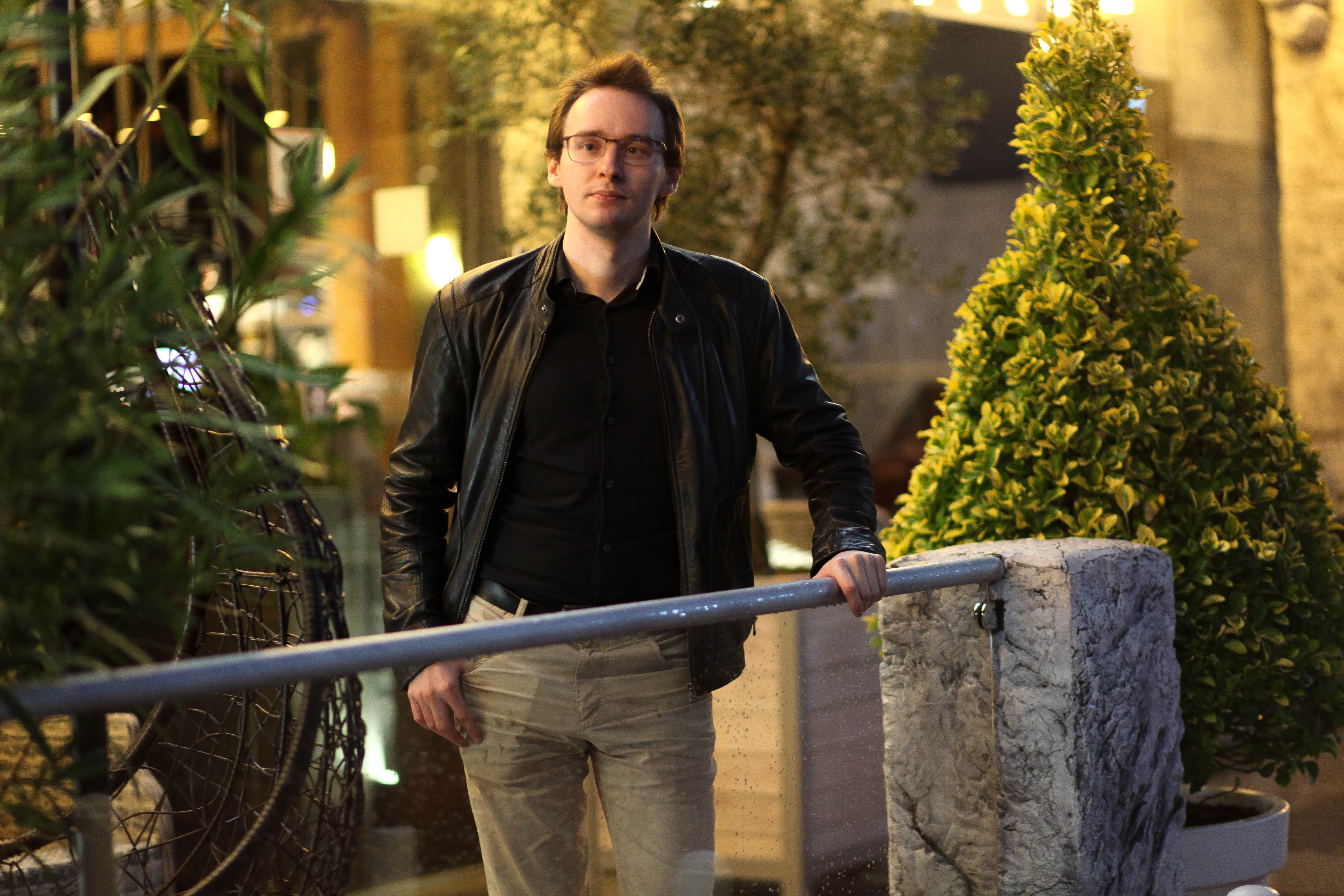Transitioning to Engineering Management: A Complete Guide
Real stories from people who made the leap—some thrived, some struggled, some went back. Here's what nobody tells you until it's too late.

There's this moment.
You're sitting in a 1-on-1 with your manager, and they ask: "Have you ever thought about management?"
Your heart does something complicated. Excitement? Terror? Both?
You say something noncommittal like "maybe someday," but the question follows you home. It sits with you through dinner. It wakes you up at 3 AM with its relentless whisper: *What if?*
Let me tell you about three people who stood at that same crossroads. Their names are different, but if you're reading this, you might see yourself in their stories.
Here's what nobody tells you about the transition from engineer to manager—until it's too late.
The Story Nobody Warns You About
Alex: The Person Who Went Back
Alex was a brilliant senior engineer. The kind who could untangle any system, who junior engineers sought out for advice, who made everything they touched better. When their manager left, the VP asked Alex to step up.
"It felt like a promotion," Alex told me. "Like validation. Like proof I'd made it."
Six months later, Alex was miserable.
"I spent my days in meetings," they said. "Performance reviews. Budget discussions. Conflict mediation. I hadn't written code in weeks. Every day I felt myself getting dumber, rustier, more disconnected from the thing I loved."
The worst part? Alex was good at management. People on their team were thriving. Projects shipped on time. Morale was high.
But Alex was drowning.
What Alex wishes they'd known:
Management isn't a promotion from engineering. It's a *different job entirely*. A job some people love and some people hate, regardless of how good they are at it.
Alex went back to being a senior IC after eight months. Took what felt like a "step back." Except it wasn't backward—it was toward themselves.
"Best career decision I ever made," they told me. "I'm a better engineer now because I understand the org. But I stopped pretending to want a job I didn't want."
The First Truth
Management is not the only way to grow. It's not a promotion—it's a career change. And career changes are supposed to be scary.
Jordan: The Person Who Almost Quit
Jordan made the transition the "right" way. Did all the prep work. Read the books. Took the manager training. Started with a small team.
And nearly had a breakdown in month three.
"Nobody told me how lonely it would be," Jordan said.
Here's what happened: Jordan's team was crushing it. Projects shipping. People happy. From the outside, Jordan looked like a natural. But inside, Jordan felt like a fraud.
"I used to solve problems with code," Jordan explained. "Now I solve problems with... conversations? Influence? Politics? I didn't even know what I was doing half the time. I just knew I couldn't fix things anymore. I had to trust other people to fix things. And waiting for that felt like torture."
What Jordan learned the hard way:
The hardest part of the transition isn't learning new skills. It's grieving the old identity. You were the person who knew things. Who fixed things. Now you're the person who helps other people fix things. It feels indirect. Slow. Like you're not doing "real work."
"It took me six months to realize helping someone else solve a problem *is* real work," Jordan said. "It's just work that shows up differently. The impact is multiplied, but the feedback loop is longer. I had to learn patience I'd never needed as an engineer."
The Second Truth
The transition is a grief process. You're mourning the engineer you were while becoming the manager you might be. Both feelings are real.
Talk to Someone Who's Made This Transition
Get guidance from managers who remember what it's like to stand where you are—uncertain, excited, and terrified all at once.
Sam: The Person Who Thought They'd Failed
Sam's first year as a manager was chaos.
One of their reports quit suddenly. Another was underperforming and Sam didn't know how to address it. A project that should have taken six weeks took four months. Sam's manager started asking questions. Sam started having panic attacks.
"I thought they were going to fire me," Sam said. "Or demote me back to IC, which felt worse—like I'd failed at growing up."
But here's what Sam's manager said instead: "First years are always rough. Show me a manager who claims their first year was smooth and I'll show you a liar or someone with no self-awareness."
What Sam wishes someone had told them:
You don't have to be good at this yet. You just have to be willing to get good at it. Your first year will be messy. This is normal. Every manager you admire had a messy first year. They just don't talk about it.
The Third Truth
Your first year will be messy. This is normal. Every manager you admire had a messy first year. They just don't talk about it.
The Questions You're Actually Asking (But Afraid to Voice)
"Will I lose my technical skills?"
Yes and no.
Yes, you'll write less code. Your Stack Overflow visits will decrease. You won't be debugging production issues at 2 AM. That specific sharpness dulls.
But here's what nobody mentions: you gain different technical skills. You start seeing systems-level problems. You understand technical debt in terms of team capacity, not just code quality. You make architectural decisions based on organizational context, not just technical elegance.
"What if I'm not a 'people person'?"
I need to tell you something that might surprise you: some of the best managers I know are introverts who hate small talk.
Management isn't about being charismatic. It's about giving a shit about people's growth and having hard conversations anyway, even when they make you uncomfortable.
"What if I fail?"
Then you'll learn something valuable about yourself and go back to IC work. Or you'll learn something valuable and become a better manager. Either way, you win.
The only failure is staying in a role that makes you miserable because you're afraid of what trying and quitting would look like.
What Nobody Tells You About the Identity Shift
Here's the thing that messes with everyone: going from IC to manager means your job is no longer to be the smartest person in the room.
Your job is to make *everyone else* smarter.
As an IC
- •Your value = your output
- •You ship features, fix bugs
- •Impact is immediate and visible
- •Feedback loops are fast
As a Manager
- •Your value = your team's output
- •You remove blockers, grow people
- •Impact is delayed and indirect
- •Feedback loops are slow
Both are valuable. But they *feel* different. And the feeling matters.
The Practical Truth: How the Transition Actually Works
Let me tell you what the first six months will actually look like, because everyone sugarcoats this part.
Months 1-2: The Honeymoon
Everything is new and exciting. You have meetings! You make decisions! You're important! This phase is a lie. Enjoy it anyway.
Months 3-4: The Crash
Reality hits. You're drowning in 1-on-1s. You have no idea if you're doing anything right. You start googling "how to quit gracefully." Everyone goes through this. Everyone.
Months 5-6: The Stabilization
You develop some systems. Your 1-on-1s have a rhythm. You're not good yet, but you can see a path to good.
Months 7-12: The Real Learning
You make your first big mistake. Someone quits, or a project fails. This is where real growth happens—because of the mistake, not despite it.
Year 2: The Competence
You're no longer firefighting constantly. You can think ahead. You start mentoring other new managers.
Year 3+: The Choice Point
Now you know if you want to keep going. Some people discover they love it. Some go back to IC. Some find hybrid roles. All three are valid.
So Here's My Question for You
Are you reading this because you're genuinely curious about management? Or because you think you're supposed to want it?
Because if it's the second one, I'm giving you permission right now: you don't have to want this. Senior IC is a complete career. Staff engineer is a complete career. Principal engineer is a complete career.
Management is not a promotion. It's not "growing up." It's not proof you've made it. It's a different job that some people love and some people hate.
You don't have to be ready. You just have to be willing to become ready.
The transition will be messy. You'll doubt yourself. You'll make mistakes. And you'll also have moments where you see someone you've mentored have a breakthrough, where your team ships something impossible, where you realize you're building something bigger than yourself.
The only question that matters: Which kind of impact do you want to make? If your answer involves "helping other people make impact," then welcome to the messiest, hardest, most rewarding career change you'll ever make.
Talk to Managers Who Remember the Transition
Engineering leaders who've navigated this career change—some smoothly, some messily, all honestly. They remember what it's like to stand where you are.

Mikhail Dorokhovich
Founder
Full-Stack Development, System Architecture, AI Integration
Founder of mentors.coach. Full-stack engineer with 9+ years of experience building scalable platforms, mentoring teams, and shaping modern engineering culture. Passionate about mentorship, craftsmanship, and helping developers grow through real projects.
Specialties:

Gaberial Sofie
Co-Founder & HR Partner
Talent Development, Team Culture, HR Strategy
Co-founder and people-focused HR professional with a background in organizational psychology. Dedicated to building compassionate, high-performing teams where mentorship and growth come first.
Specialties:

George Igolkin
Blockchain Developer
Smart Contracts, DeFi, Web3 Infrastructure
Blockchain engineer passionate about decentralized systems and secure financial protocols. Works on bridging traditional backend systems with modern blockchain architectures.
Specialties:

Valeriia Rotkina
HR & Career Coach
Human Resources, Learning Programs, Career Education
HR specialist and educator with a focus on personal development and emotional intelligence. Helps professionals find clarity in their career path through structured reflection and goal-setting.
Specialties:

Kristina Akimova
HR Strategist
Recruitment, Employer Branding, Team Well-Being
HR partner dedicated to fostering healthy team dynamics and building inclusive hiring processes. Experienced in talent acquisition and communication strategy for growing tech companies.
Specialties:
Which Kind of Impact Do You Want to Make?
Whether you choose management or stay IC, make the choice that's honest. Get guidance from someone who's stood at this crossroads.
The transition is a grief process and a growth process. Both are real. Both need support.